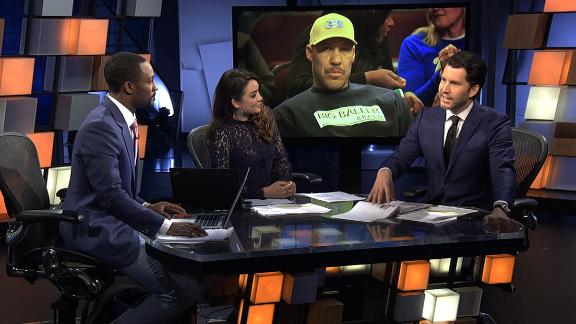
I was at the park the other day, sitting with a dad friend and solving all the world’s problems as we watched our kids play. We toasted the fact that they were old enough, and we had been parents long enough, that not only did we not follow them around for every swing, climb and jump, but we were only vaguely aware of where they were.
Instead of focusing on them, we focused on each other and the struggles we have as dads. We discovered we both had developed a knee-jerk habit of saying no to whatever our kids ask and coming up with a reason afterward. Way more often than I care to admit, “no” is out of my mouth before my daughters have even finished asking their question.
Neither one of us believes our kids deserve long and thorough explanations for every decision. But neither one of us was showing our kids the respect we want to show them, either. We both say, “because I said so” more than we should. “Because I said so” is the Thin Mints of parenting. The first one tastes like heaven. But once you start, you can’t stop. Soon, the whole sleeve is gone and half an hour later you feel terrible.
I’m not sure how he developed his habit, but I did in part because my daughters ask me an infinite mass of questions that I started to say no and “because I said so” out of sheer exhaustion. Nobody on this earth has the mental bandwidth to give careful consideration to every single question they pose, and it’s easier to have “no” be the default answer than “yes.”
My parents savor the irony. I used to follow my dad around in our garage, asking him so many questions he would go back into the house and tell my mom to get me away from him so he could get some work done. He did that in a loving way, I’m sure. So at least my daughters come by it honestly, I guess.
That conversation at the park stuck with me for days. I want to be a dad who says “yes” 100 percent of the times he should and “no” 100 percent of the times he should, but I have no idea how. It would, of course, be easier to say yes if the questions were easier to say yes to, which occurred to me yesterday afternoon, when my daughter asked this beauty: “Do you want to go outside and play baseball?”
EUREKA! A question I will always say yes to!
I wondered if that was a unicorn. I tried to make a list of questions I would always say yes to. It wasn’t very long. To find more, I launched an in-depth investigation, by which I mean I posted a question on Facebook. Here are the results — questions that all parents, everywhere, should always say yes to:
Can I sit on your lap?
Will you buy me this book? (Suggested by an obviously new parent. If I said yes to this every time my kids asked it, we’d be able to afford to eat only Ramen soup and dirt sandwiches.)
Can you read me a story?
Do you want to finish my pizza?
Can I eat your tomatoes? (I didn’t understand this one until I thought of inserting “green peas” for tomatoes, and then I loved it.)
That’s “2112” — can you turn it up really loud?
Should I clean my room?
Do you want to watch the Tigers? (The friend who suggested this put “Tar Heels” in the “Tigers” spot, but this is my essay, not his.)
As much of an undeniably great public service as this list is (you’re welcome, world) it’s not just yes or no questions that wear me down. I want my kids to crave knowledge, to explore the world around them, to poke and prod and challenge and to ask me about whatever they want to know. Curiosity killed the cat is the dumbest idiom I’ve ever heard. I want them to relentlessly pursue information. But I’d also like to watch 30 consecutive seconds of a movie at some point in my life without having to press pause.
And now that they have discovered sports, a whole new world of problems has cropped up. For years, “Is Danica playing?” was the only sports question they ever asked, and they posed it regardless of what I was watching, as if “sports” was one great big thing with one cast of characters. Now that they are starting to play sports, it’s not their questions that are frustrating, it’s my answers.
There’s a basketball court at the park 200 yards from our house. My girls recently started asking about the rules of the game. Trying to explain double dribble, traveling and the fact you can’t jump up and down while holding on to the ball makes the sport sound like it was invented by people whose goal was to make basketball be not very much fun. “Why?” they asked repeatedly. “Because that’s how it is,” I said, and to them that’s even worse than “because I said so” because there’s nobody to argue with. Regardless, my girls discovered they don’t really want to “play basketball,” they want to play with a basketball.
Baseball is even worse. Baseball is the greatest game, but it sounds like the dumbest when you’re trying to explain it. My girls only barely know what base runners are. As we played “baseball” in the front yard after the aforementioned epiphany-inducing question, they asked a million billion trillion questions as I tried to make “ghost runners” make sense to them. I failed. Not that I blame them for being baffled. I confused myself with my answers.
I felt like I crossed to another level of qualitative parenting by never uttering the word “inning” because I don’t know why it’s called an inning and trying to find out after their inevitable barrage of questions would end up with the game being canceled by darkness.
I hope they never hear of the DH rule.
Matt Crossman is a freelance writer based in St. Louis, where he’s trying to teach his daughters to root for Detroit teams. Follow him on twitter at @MattCrossman_ and read more of his stories at mattcrossman.com.






